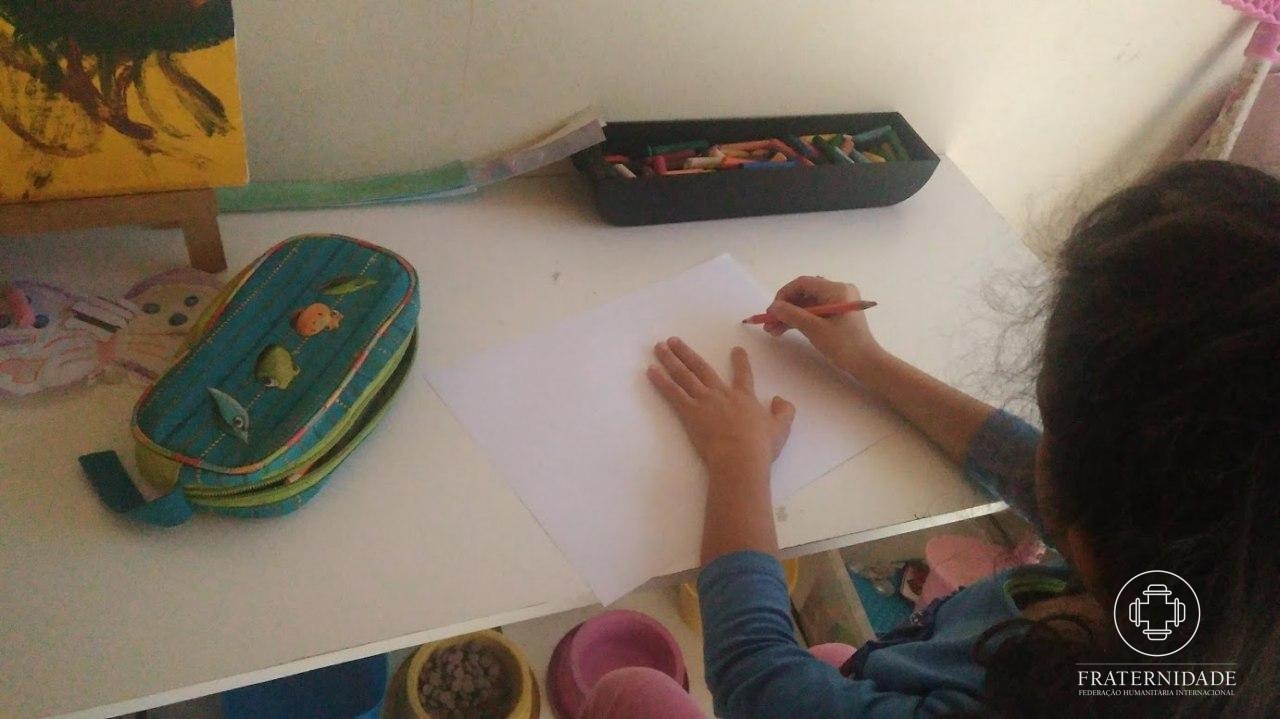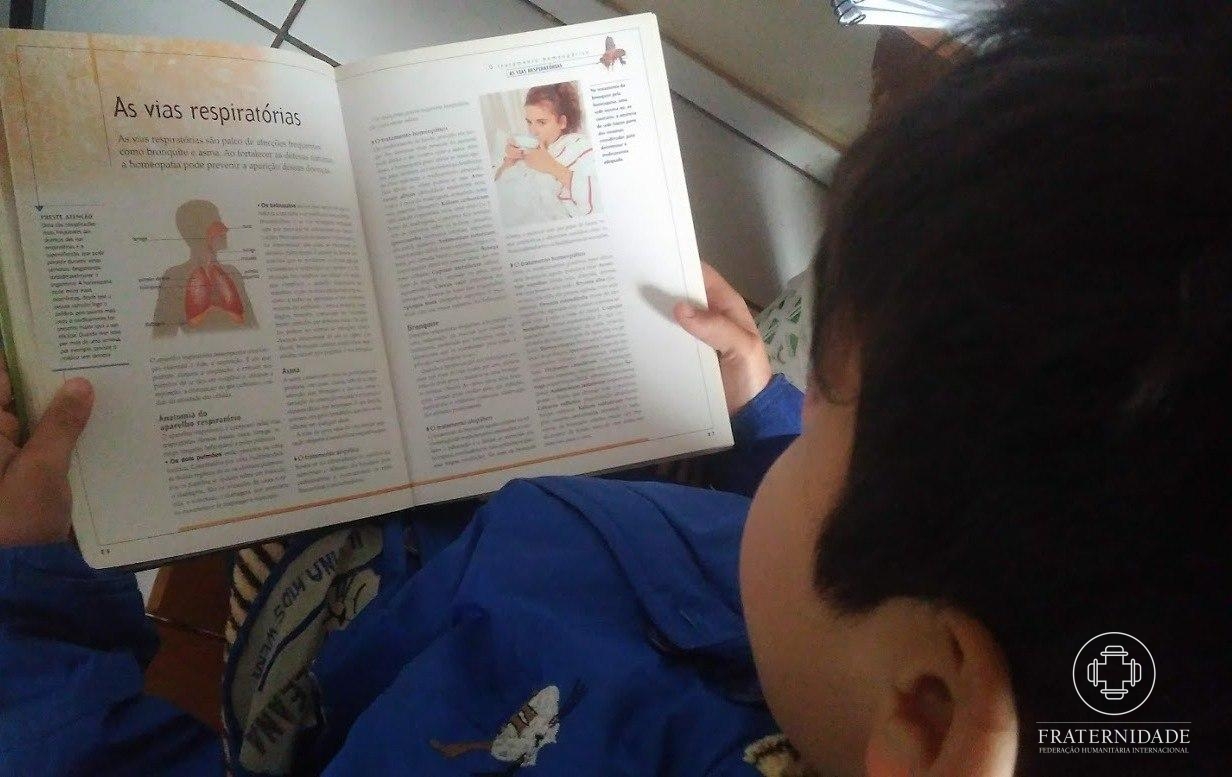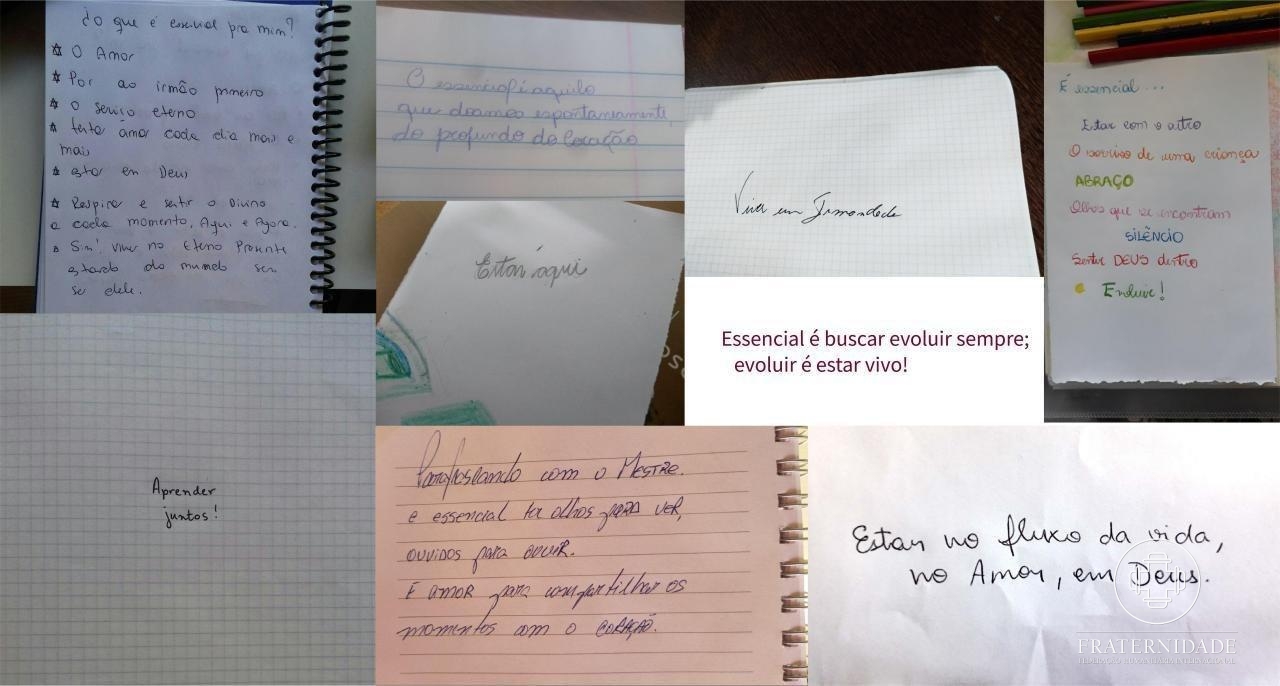Careful commitment and a lot of creativity are being required for all of the teaching staff at the Parque Tibetano School when facing the challenges related to continuing to teach in this period of the pandemic.
Looking for inspiration in the elements of the Waldorf educational system, in the teachings of The Mother (Mira Alfassa), who continued the work of Sri Aurobindo, in the teachings of Alice Bailey, and all established in the attributes of the Light-Community of Figueira, the Parque Tibetano School, member of the Fraternity- International Humanitarian Federation (FIHF), continues with a line of work with an interpersonal contact between teachers and children being fundamental. “Education-wise, eye-to-eye contact with the child is basic in orienting the work to be developed,” explains the director, Luciana Guimarães.
Although at this time of social distancing, the most practical thing may simply be to use technology as an aide, the school chose to not make indiscriminate use of online classes, according to what the director explains: “the school prefers to not stimulate the children and the young people with an extended use of the cellphone or computer; this is why it has encouraged the teachers to be creative and careful in the planning of activities, stimulating the educational potentials of the very context in which the children and young people live.”
Among those alternative activities, those that stand out are: sending printed materials, such as study guides, borrowing books for reading and research, exchanging handwritten letters between students and teachers, tasks done in notebooks, and at times, using phone calls to send stories and activity scripts. The technological resources are present in some meetings by videoconference or in exchange of messages by apps.
Remembering that the remote classroom is not synonymous with online classes, Luciana emphasizes that “the focus has especially been in maintaining the connection and partnership that exists among the families, the students, and the school.”
Overcoming Challenges
In the beginning, some difficulties existed for establishing a new rhythm between the school, the families, and the corresponding private or public organizations as to the dynamics and deadlines of the remote study. The idea of the management of the school was to distribute a questionnaire to the families so as to understand their needs, which served as a foundation for putting all the strategies in place. According to the coordinator, Joana Liu, “the response [given] to those questions gave us a margin for the river to take shape again and flow once more in the same direction.”
For the school’s educational coordinator, Sister Inmaculada, the new reality experienced by everyone initially brought a reflection on the “importance of the family nucleus as the educational body.” And immediately, the reflections expanded: “It seems that in some way, we returned again to that which is essential. It seems it brought an inner strength for dealing with the unexpected, the unusual, and to put our creativity and spirits more to work; to deal [with this] in unity, as a management, education, and the family unit, holding hands both to support the purpose of this school, as well as to overcome the challenges and difficulties of this situation of confinement.”
Challenges faced and initial adversities overcome, what at first seemed impossible, gradually eased with the union built between the school and the families. “Little by little, the school team and the families created a new rhythm together with the children, and opening up to a new remote format,” Joana says. Optimistically, she adds: “We feel more prepared, strong, confident, and creative for continuing and facing the challenges that present themselves, in the certainty that there are always new pathways to be discovered and many lessons to be learned.”









